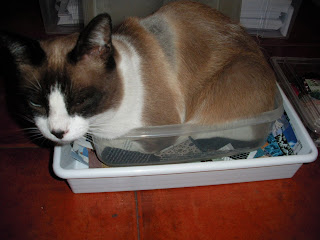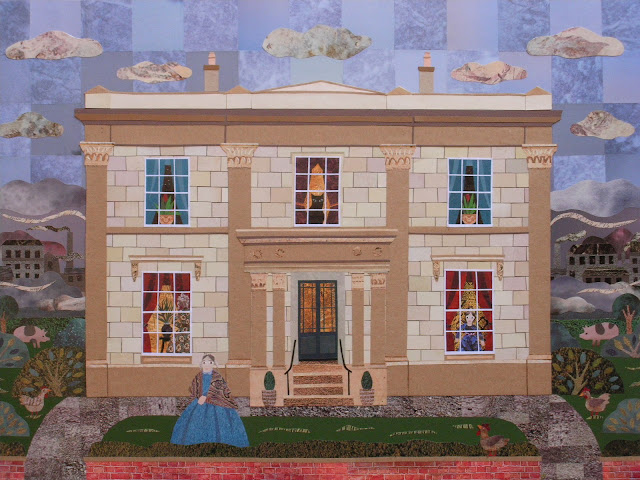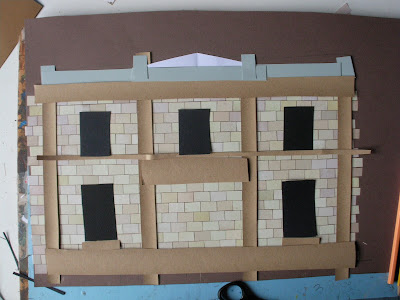Dr Johnson's House was one of the first writers' houses I ever visited. A long time ago. But I've managed to revive my memories of it by browsing books.
A large picture book is on my worktop as I snip, opened at this page:
And on my bedside table is this book:
And this is the state of affairs on my drawing board:
Johnson (1709-1784), who was originally from Lichfield, had any number of addresses in London over the years, but 17 Gough Square, off Fleet Street, is his lasting museum memorial. He lived here for 10 years, from 1748. And it was in this house, in the garrett, that he compiled his famous dictionary, with the help of no less than six assistants.
I should imagine it was quite a busy place, what with the comings and goings of the inky assistants, those of Johnson's large circle of friends and an assorted selection of waifs and strays.
His wife, Elizabeth, who was 21 years older than him, spent most of her time away, swapping the smoke and fog of London for what sounds like a haze of opium and alcohol in Hampstead. She died in 1752.
Johnson had already taken in one Robert Levet, a self-styled physician and former Parisian waiter who practised his medicinal skills among the London poor.
In 1752 a friend of his wife's, Anna Williams, moved in. Recently blinded by cataract, she was intelligent and a good conversationalist and despite her disability presided over his tea-table and acted as housekeeper.
Then there was Francis Barber, a black servant who he treated as a son and who would become chief beneficiary of his will.
And we mustn't forget the Johnson cats of whom Hodge was his favourite (and who is immortalised by a statue in the square).
So some of these inhabit the house I am putting together now.
In between, that is, packing up and posting off my cards, prints and an imaginary portrait or two.
But that's for my next post ....























.jpg)


















.JPG)





